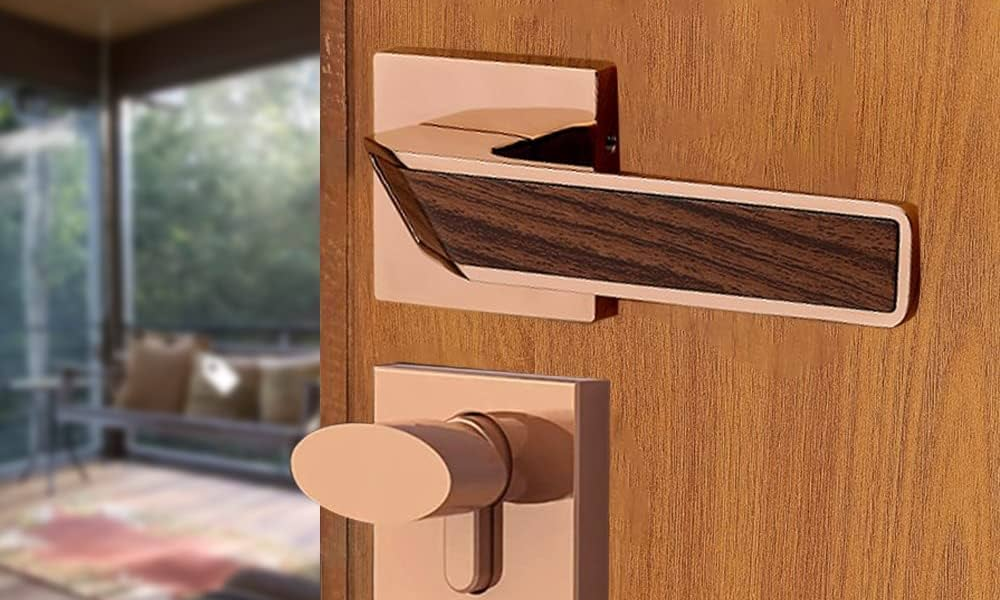Introduction
A bedroom door padlock can provide an extra layer of security and privacy, especially in shared living situations or for individuals who value personal space. While not a foolproof solution, a well-chosen and properly installed padlock can deter unwanted intrusions and offer peace of mind. This article will explore the different types of bedroom door padlocks, their benefits, installation considerations, and potential drawbacks.
Types of Bedroom Door Padlocks
Deadbolt Padlocks: Deadbolt padlocks are a popular choice for bedroom doors due to their strength and durability. They are typically installed on the inside of the door and require a key to unlock from the outside.
Hinged Padlocks: Hinged padlocks are attached to the door frame and have a hinged shackle that can be swung open to unlock. They are less secure than deadbolt padlocks but can be a more affordable option.
Combination Padlocks: Combination padlocks require a specific combination of numbers or symbols to unlock. They are convenient as they don’t require keys, but they can be more difficult to use in an emergency.
Electronic Padlocks: Electronic padlocks use biometric features (such as fingerprints or facial recognition) or a code to unlock. They offer a high level of security but can be more expensive and require batteries.
Benefits of Using a Bedroom Door Padlock
Enhanced Privacy: A bedroom door padlock can provide a sense of privacy, especially in shared living situations. It can deter roommates, family members, or housemates from entering your room without your permission.
Increased Security: A well-installed padlock can act as a deterrent to potential intruders. It can make it more difficult for someone to enter your room without being noticed.
Peace of Mind: Knowing that your bedroom door is secure can provide a sense of peace of mind and reduce anxiety.
Safety for Children: If you have young children, a bedroom door padlock can help prevent them from wandering into other areas of the house or accessing potentially dangerous items.
Door Type: The type of door you have will determine the appropriate padlock. Most padlocks are designed for use with wooden doors, but there are also options for metal or glass doors.
Existing Hardware: Check if your door already has a deadbolt or other hardware that can be used in conjunction with a padlock.
Installation Difficulty: Some padlocks are easier to install than others. If you are not comfortable with DIY projects, consider hiring a professional to install the padlock for you.
Potential Drawbacks
Emergency Access: If you use a padlock to secure your bedroom door, it is important to have a backup plan in case of an emergency. Consider keeping a spare key with a trusted friend or family member.
Maintenance: Padlocks may require regular maintenance, such as lubrication or cleaning. Failure to maintain your padlock could lead to difficulties with unlocking it.
Cost: Depending on the type of padlock and its features, the cost can vary. Higher-quality padlocks may be more expensive but also offer better security.
FAQs
Why should I use a padlock on my bedroom door?
A bedroom door padlock can provide enhanced privacy, increased security, and peace of mind, especially in shared living situations.
What are the different types of bedroom door padlocks?
Deadbolt padlocks, hinged padlocks, combination padlocks, and electronic padlocks are common types. Each has its own advantages and disadvantages.
How do I choose the right padlock for my bedroom door?
Consider factors such as the type of door you have, your budget, and the desired level of security.
Can I install a bedroom door padlock myself?
Yes, many padlocks are relatively easy to install. However, if you are unsure, it’s best to consult a professional.
What tools do I need to install a bedroom door padlock?
You may need a screwdriver, drill, and measuring tape, depending on the type of padlock and your door.
How do I maintain my bedroom door padlock?
Regularly clean and lubricate your padlock to ensure proper functioning. Avoid using excessive force when unlocking it.
Security and Privacy
How secure is a bedroom door padlock?
A well-installed and high-quality padlock can significantly enhance security, but it’s not foolproof. It can deter intruders and provide a sense of privacy.
Can a bedroom door padlock be picked or broken?
Yes, it is possible to pick or break a padlock. However, a quality padlock with good security features can make it more difficult.
What are the potential drawbacks of using a bedroom door padlock?
A padlock can make it difficult to access your room in an emergency. It may also require regular maintenance and could be a target for theft.
How can I ensure emergency access to my bedroom if I use a padlock?
Keep a spare key with a trusted friend or family member, or consider installing a keyless entry system.
What should I do if I lose the key to my bedroom door padlock?
If you have a spare key, you can use that to unlock the door. If not, you may need to call a locksmith.
A bedroom door padlock can be a valuable addition to your home security measures, providing privacy and peace of mind. By carefully considering the different types of padlocks, installation requirements, and potential drawbacks, you can choose the best option to suit your needs and budget. Remember, while a padlock can deter unwanted intrusions, it is not a foolproof solution. It is always important to take additional steps to secure your home and personal belongings.
A bedroom door padlock can be a valuable addition to your home security measures, providing privacy and peace of mind. By carefully considering the different types of padlocks, installation requirements, and potential drawbacks, you can choose the best option to suit your needs and budget. Remember, while a padlock can deter unwanted intrusions, it is not a foolproof solution. It is always important to take additional steps to secure your home and personal belongings.
To read more, Click here.

